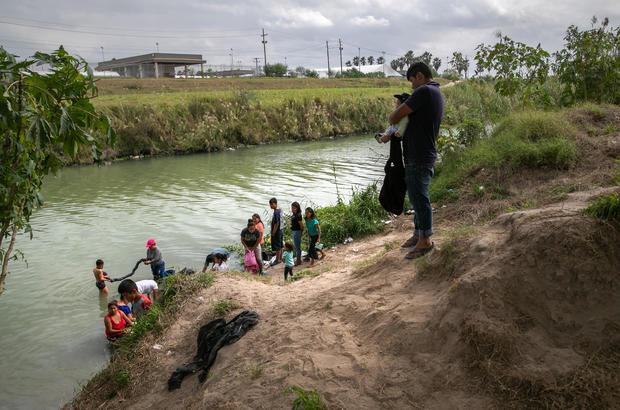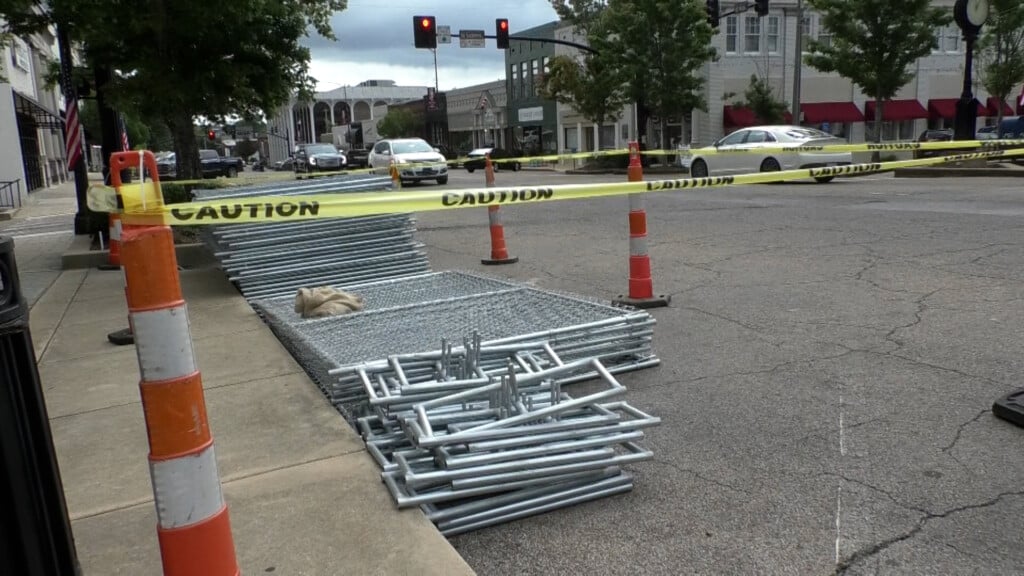Court blocks Trump's “Remain in Mexico” policy
A federal appeals court in California on Friday blocked a centerpiece of the Trump administration’s network of restrictive policies at the southern border, ordering officials there to stop sending asylum-seekers to Mexico, where tens of thousands of Latin American migrants returned by the U.S. have been stranded for months.
Through its ruling, the 9th Circuit Court of Appeals prohibited the government from implementing its controversial Migrant Protection Protocols (MPP) program, known as the “Remain in Mexico” policy. The administration has touted the program as one of the main reasons it curbed a migration surge of Central American families last year that overwhelmed officials and stations across the southern border for months.
Since early 2019, the U.S. has required nearly 60,000 asylum-seekers to wait in Mexico for the duration of their immigration court proceedings under this program, which has drawn scathing criticism from advocates. They believe the policy violates both domestic and international refugee law, pointing to the high levels of violence and insecurity in the areas of northern Mexico where the U.S. has been sending migrants placed in the program.
“The court forcefully rejected the Trump administration’s assertion that it could strand asylum seekers in Mexico and subject them to grave danger,” said Judy Rabinovitz, the American Civil Liberties Union (ACLU) lawyer spearheading the legal challenge against the “Remain in Mexico” policy.
In their order, which upheld a preliminary injunction issued by a federal judge last spring, two circuit judges on a three-judge panel in San Francisco appeared to share the concerns raised by advocates, writing that migrants returned to northern Mexico “risk substantial harm, even death, while they await adjudication of their applications for asylum.”
U.S. District Judge William A. Fletcher, who was appointed by President Clinton, said in his majority opinion that the asylum-seekers and legal groups the ACLU is representing are likely to succeed on their two main challenges to the policy: that it violates the “non-refoulement” principle in international and U.S. law of not returning asylum-seekers to places where they may face persecution, and that a 1996 law the administration has been citing to defend the legality of the program does not allow officials to return all asylum-seekers to countries that border the U.S. like Mexico.
Circuit Judge Ferdinand Fernandez, an appointee of President Reagan, dissented.
The ruling on Friday could be a short-lived victory for advocates, since the administration is expected to appeal it and could also ask the Supreme Court to set it aside. “The Trump Administration has acted faithfully to implement a statutory authority provided by Congress over two decades ago and signed into law by President Clinton,” a Justice Department spokesperson said in a statement. “The Ninth Circuit’s decision not only ignores the Constitutional authority of Congress and the Administration for a policy in effect for over a year, but also extends relief beyond the parties before the Court.”
The Department of Homeland Security did not respond to a request for comment, while Customs and Border Protection did not immediately say whether it had stopped implementing the program.
As a result of the MPP policy, tens of thousands of asylum-seekers from Central America, Cuba, Venezuela and other Latin American countries who would otherwise be in the U.S. are stranded in overcrowded shelters and squalid makeshift encampments in northern Mexico, including in crime-ridden cities like Ciudad Juárez and Matamoros, located in a region the U.S. government warns American travelers not to visit due to rampant violence.
Advocates and even some of the asylum officers implementing the program have been withering in their criticism of Remain in Mexico, saying it violates international obligations against returning migrants seeking refuge to dangerous places. The group Human Rights First has denounced hundreds of reported kidnappings and assaults.
A CBS News series last summer detailed the due process concerns about the policy, which makes it extremely difficult for migrants to secure U.S.-based lawyers generally needed for successful asylum claims. According to data by researchers at Syracuse University, only about 5% of migrants in the program have had lawyers represent them in proceedings in the U.S. — which, for many migrants, now occur inside makeshift tent-like courts in the Rio Grande Valley.
Out of about 35,500 completed cases in the program, only 263 migrants have been granted asylum or some other form of protection, according to Syracuse University’s Transactional Records Access Clearinghouse (TRAC).
Despite the criticism, the administration has defended the “Remain in Mexico” program as an effective tool in reducing border apprehensions, which have dropped for eight consecutive months since May.
The policy had been briefly blocked by a federal judge in April, but the 9th Circuit ruled in May that the administration could proceed with the policy as it considered the merits of the legal challenge mounted by several advocacy groups. After the panel’s decision, the administration dramatically expanded the program.
In a separate ruling on Friday, another panel in the 9th Circuit upheld a lower court injunction that has blocked a rule that would render migrants who cross the border in between ports of entry ineligible for asylum.
“Once again the courts have recognized there is tremendous danger facing asylum seekers along the entire southern border, and that the administration cannot unilaterally rewrite the laws,” said Lee Gelernt, the top ACLU attorney in that case.






Leave a Reply